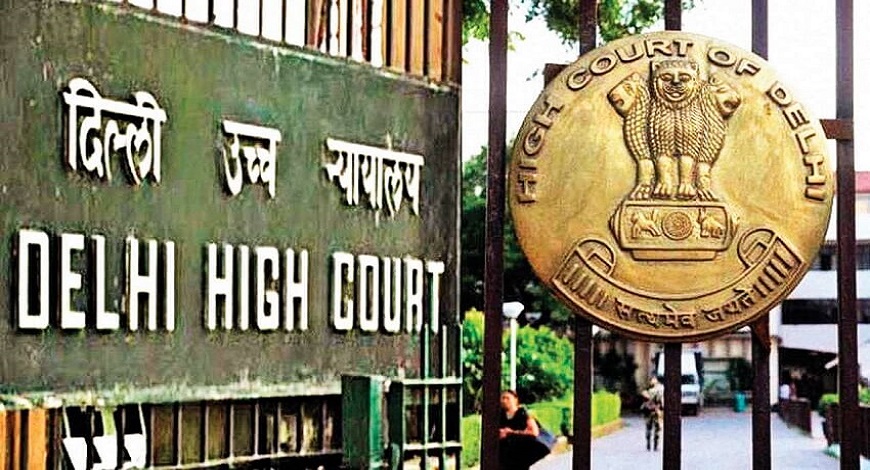The Delhi High Court has opined that the offence under Section 33 of the Delhi Excise Act, 2009, which has been alleged against the petitioner, is not made out from the facts and circumstances of the instant case, and that the quantity of liquor that has been seized from the residence of the petitioner, falls within the maximum permissible limit specified under Rule 20 of the Delhi Excise Rules, 2010.
A Single Bench of Justice Subramonium Prasad quashed the FIR against petitioner Avijeet Saluja on November 18, 2020, registered at Police Station Hauz Khas for offence under Section 33 of the Delhi Excise Act, 2009.
It was stated that on November 17, 2020, a raid had been conducted by the Excise Department and a total of 132 bottles of liquor of both Indian and Foreign brand were found from the bar counter on the ground floor of the house. When the owner of the house (petitioner), was asked about a valid licence pertaining to the stored liquor, he stated that he had no licence.
As the recovered quantity of liquor was allegedly beyond the permissible limit prescribed under the Delhi Excise Act, 2009, the instant FIR under Section 33 of the Delhi Excise Act, 2009, was registered.
Priyanka Sinha, Counsel for the petitioner, stated that there has been no infringement of Delhi Excise Rules, 2010. She informed the High Court that there are 6 adults above the age of 25 years (including the Petitioner herein) and 4 children residing at the Petitioner’s residence.
Relying on Rule 20 (a) of the said Rules, Sinha submitted that the maximum limit for individual possession of liquor for Indian Liquor and Foreign Liquor (whisky rum, gin, vodka and brandy) is nine litres, and for wine, beer, liqueur, cider and alcopop is 18 litres. She stated that as per the FIR, the liquor seized from the Petitioner’s house amounts to 51.8 litres of whisky, rum, vodka, gin, and 55.4 litres of wine, beer, alcopop. Sinha, therefore, submitted that the amount of liquor recovered falls within the maximum permissible limit as per Rule 20 of the Delhi Excise Rules, 2010, and that offence under Section 33 of the Delhi Excise Act, 2009, is not made out.
R.S. Kundu, Assistant Standing Counsel appeared for the State. Status report on record indicates that an application had been filed by the Petitioner before the Metropolitan Magistrate(M.M.) Saket Court, New Delhi for releasing of the liquor. Vide Order dated 02.03.2021, direction was given to the IO by the M.M. to not take further steps in the instant matter. Further, interim protection had also been granted to the Petitioner till the disposal of the application before the M.M.
The High Court noted that a reading of the Rule 20 indicates that an individual of above 25 years of age can possess 9 litres of whisky, vodka, gin and rum, and 18 litres of beer, wine and alcopop. A perusal of the FIR reveals that 132 bottles of liquor had been recovered from the petitioner’s house, containing 51.8 litres of whisky, vodka, gin, rum, and 55.4 litres of beer, wine. As per Rule 20, as the joint household of the petitioner consists of six adults above 25 years of age, the permissible limit for possession of liquor at the petitioner’s house would be 54 litres of whisky, vodka, gin and rum, and 108 litres of beer, wine and alcopop. There is prima facie no violation by the Petitioner of the Delhi Excise Act, 2009.
Also Read: Allahabad High Court dismisses petition seeking protection for sons of Mukhtar Ansari
“Quashing of criminal proceedings under Section 482 Cr.P.C. is called for in a case where the complaint does not disclose any offence, or is frivolous, vexatious, or oppressive. If the allegations set out in the complaint do not constitute the offence of which cognizance has been taken by the Magistrate, it is open to the High Court to exercise its inherent powers and quash the same. It is not necessary that a meticulous analysis of the case should be done before the trial to find out whether the case would end in conviction or acquittal. If it appears on a reading of the complaint and consideration of the allegations therein, in the light of the statement made on oath that the ingredients of the offence are disclosed, there would be no justification for the High Court to interfere [See Kamal Shivaji Pokarnekar v. State of Maharashtra and Ors., (2019) 14 SCC 350]”
-the High Court relied.
In light of above observation the High Court allowed the Petition and quashed an FIR for the alleged illicit storage of liquor which was stated to be beyond the legally permissible limits.


